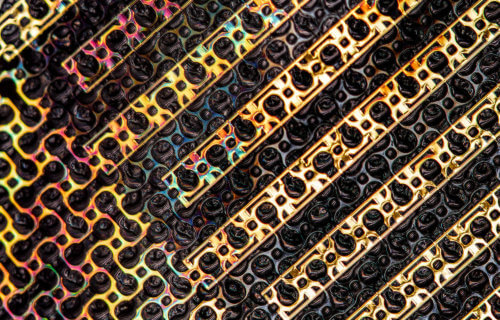CAMBRIDGE, Mass. — Scientists have created a new sweat-proof “electronic skin” that can monitor your vital signs even while sweating on a treadmill or eating a spicy meal. Researchers at MIT developed the comfortable sensor-embedded patch that they say won’t malfunction or peel away even when the wearer is a sweaty mess.
Study authors say kirigami, the Japanese paper-cutting art, inspired them while designing the system which allows perspiration to escape through the patch. The film is so flexible, stretchy, and bendy, that it is comfortable to wear for long periods of time while it monitors vitals.
The patch measures temperature, hydration levels, UV exposure, and a person’s pulse while being comfortable to wear on the wrist for long periods of time, according to the study appearing in Science Advances.
The MIT team says previous developments into electronic skin have failed to consider sweat, which can often build-up behind the electronic skin and cause irritation and the sensors to malfunction. The new study looked at human sweat pores and discovered the diameter of the average poor is about 100 microns – about as wide as a strand of hair.
Wear it anywhere and it won’t fall off
They also found they could increase the patch’s strength and flexibility by looking at Japanese paper-cutting techniques and creating a pattern that was able to stretch. A volunteer wore the electronic skin continuously for over a week and was able to monitor his vitals even during sweat-inducing activities such as running on a treadmill or consuming fiery-hot meals.
The design also conformed to skin, sticking to the volunteer’s forehead, when researchers asked the participant to frown repeatedly while sweating profusely. This was a big step beyond with other e-skin designs that lacked sweat permeability and easily detached from the skin.
“With this conformable, breathable skin patch, there won’t be any sweat accumulation, wrong information, or detachment from the skin,” says Dr. Jeehwan Kim, associate professor of mechanical engineering at MIT, in a university release. “We can provide wearable sensors that can do constant long-term monitoring.”
SWNS writer Joe Morgan contributed to this report.
